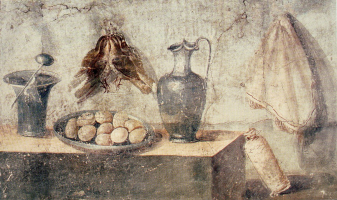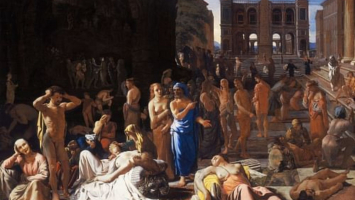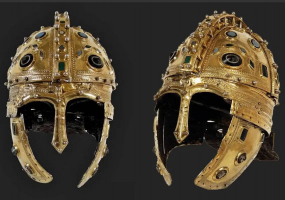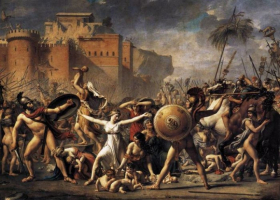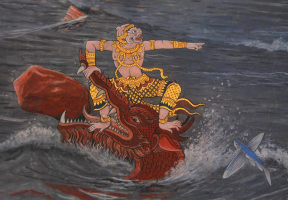Top 10 Most Powerful Women of Ancient Rome
Women in ancient Rome were considered full citizens at first, but they were denied the ability to hold political office or even cast a ballot. Up until a few ... read more...women rose to prominence, their public role was modest. After their deaths, these ladies were revered as goddesses and rose to prominence as Augusta, the Roman Empress. They played a significant part in counseling, advising, and directing the Roman Emperors of the time. Here is the list of the top 10 most powerful women of Ancient Rome who had a huge role in impacting women then and now.
-
Fulvia was a prominent figure in the vibrant final years of the Roman Republic. She was a member of the Fulvia gens, who were from Tusculum. She was wed to Mark Antony, Gaius Scriboniu Curio, and Publius Clodius Pulcher. She was only well-known to the public, nevertheless, after she wed Mark Antony.
She became a partner in Mark Antony's political career when they got married. She advised Antony on several political decisions that he made. She suggested, for instance, that he grant Sicilians Roman citizenship and ratified Deiotarus's accession to his throne. Fulvia stood up for her husband against Cicero's vicious rhetorical assaults. It is said that Fulvia stabbed the tongue of Cicero with her hairpin after he was assassinated in retaliation for the horrible things he had said about her. Fulvia was believed to be in charge of the city when Mark Antony and Octavian left to hunt down Caesar's killers.
She remained in Octavian's West and proved to be a pain in his side when Antony and Octavian divided the Roman world between them. She recruited eight legions and took control of Rome while mobilizing forces against Octavian. She lost, lost the support of her husband Antony, and passed away. She played a significant part in the Perusine War between 41 and 40 BC and was the first living woman to have her face depicted on a Roman coin. She is one of the most powerful women of Ancient Rome.
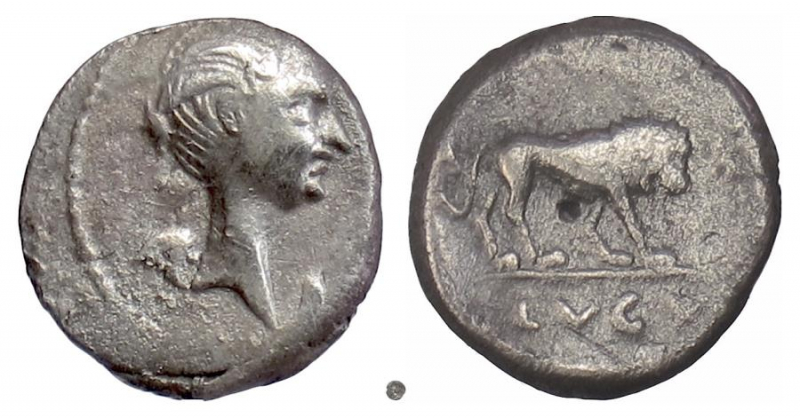
Photo: VCoins 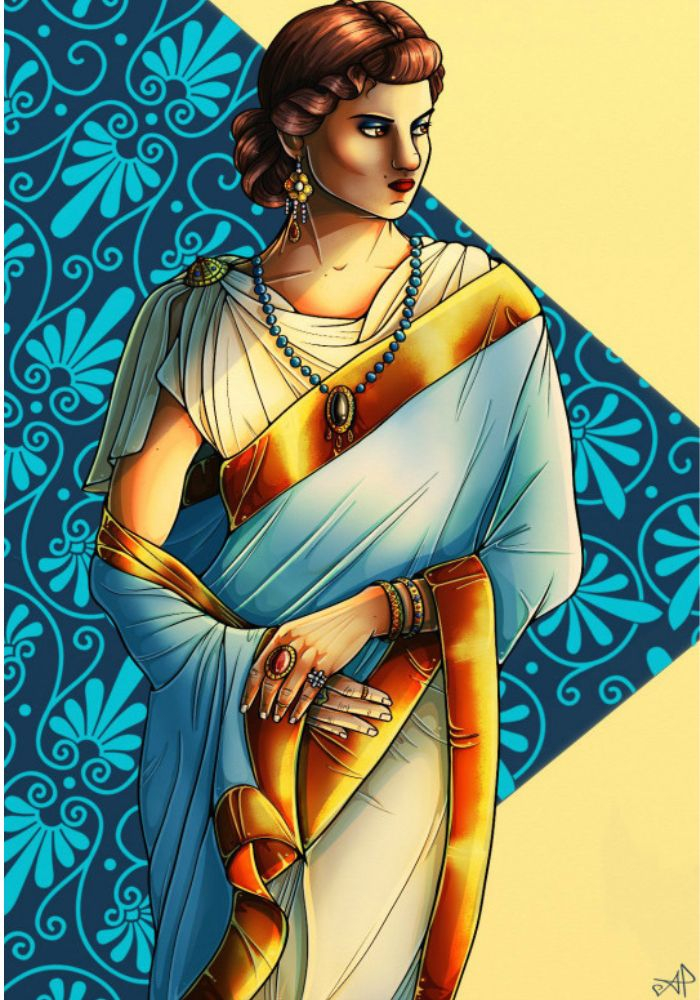
Photo: TumblrGallery -
Theodora was not born into high society like the others on this list. Her mother was an actress, while her father was a bear trainer. Theodora may have performed as a prostitute and followed her mother onto the stage. After leaving her dubious occupations, Justinian, the heir to the throne, caught her attention. Despite obstacles with the law and opposition from the imperial family, they managed to win his love and get married. Theodora was a dominant figure in court when her husband was emperor. The Byzantine Empire was ruled by Justinian I and Theodora in the sixth century. The Empire had prosperity, illumination, and expansion.
Theodora persuaded people to stay and fight when riots threatened to topple Justinian instead of running away. Her followers attained positions of tremendous influence. Theodora was the first female figure to acknowledge the rights of women and make changes to the legal system. She was revered as a saint by the Eastern and Oriental Orthodox Churches and advocated for social and theological causes.
She similarly gave political assistance and guidance to Jacob Baradaeus's Ministry. Sadly, she passed away on June 28th, 548, from cancer and became one of the most powerful women of Ancient Rome. The Church of Holy Apostles, a structure created by Theodora and Justinian, is where her remains were interred.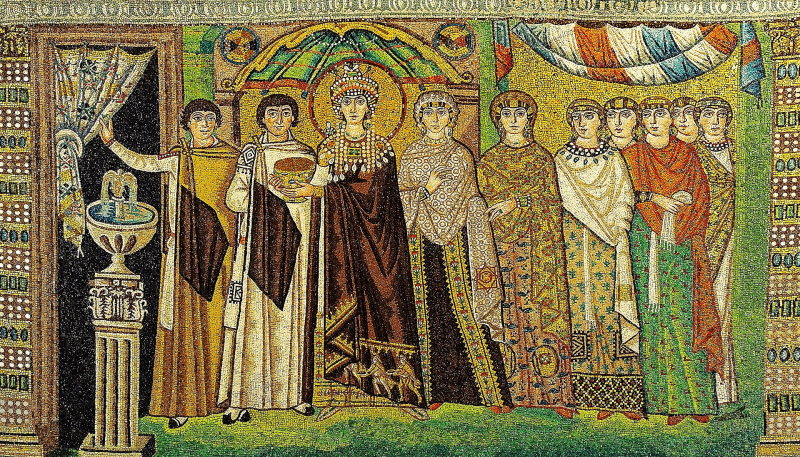
Photo: www.historyanswers.co.uk 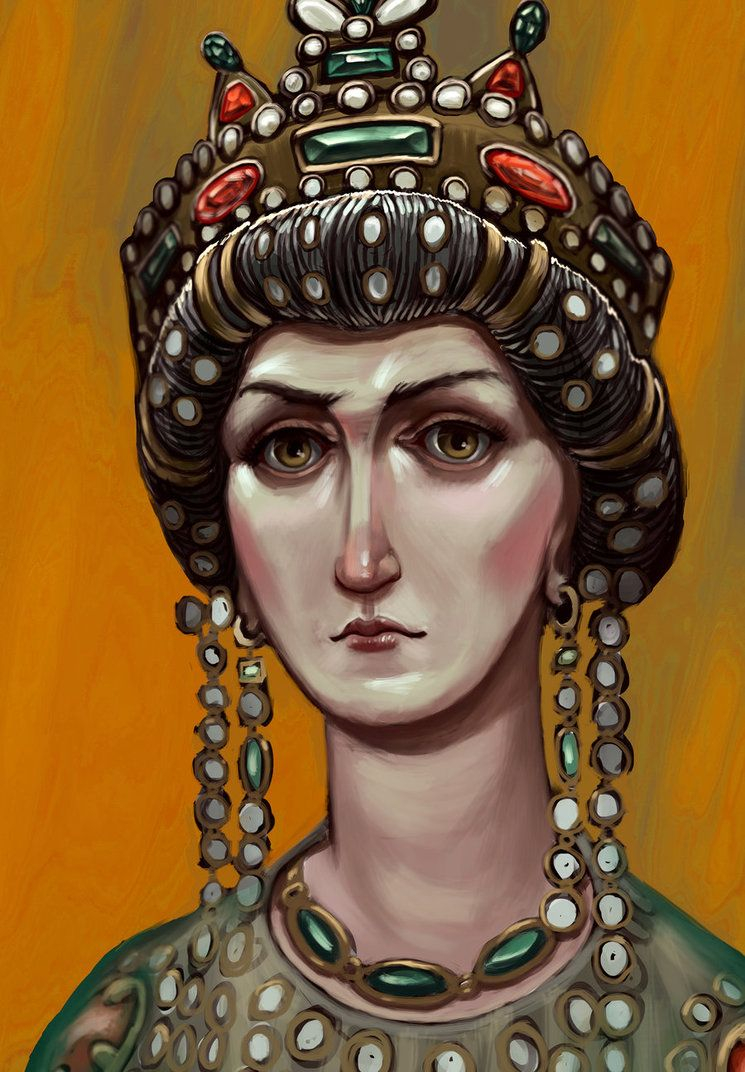
Photo: Theodora -
In the latter half of the fourth century CE, Aelia Pulcheria was conceived into the imperial family of the Eastern Roman Empire. When Pulcheria's father passed away, his 7-year-old brother assumed the crown. At age 15, she disregarded the authorities' decision and asserted her authority as his guardian. She then vowed to remain a virgin forever in order to avoid getting married. The court became devout under her direction.
Her brother, however, was unable to manage the Empire, thus she was forced to oversee all business concerns. On July 26, 450, her brother passed away, leaving her to lead the Empire by herself for a full year. Despite her pledge of chastity, she was compelled to marry a spouse in order to share the rule because she was deemed unfit for the position of queen due to her sex. The marriage was never consummated, but her spouse was forced to pledge that he would uphold her word. She was compelled to wed Emperor Marcian on November 25 of the same year in order to control the Empire.
Aelia participated in the Council of Ephesus and oversaw the Council of Chalcedon, exerting significant influence on the Christian Church during her rule. The church declared her to be a saint. In July 453, she passed away three years after she wed Emperor Marcian.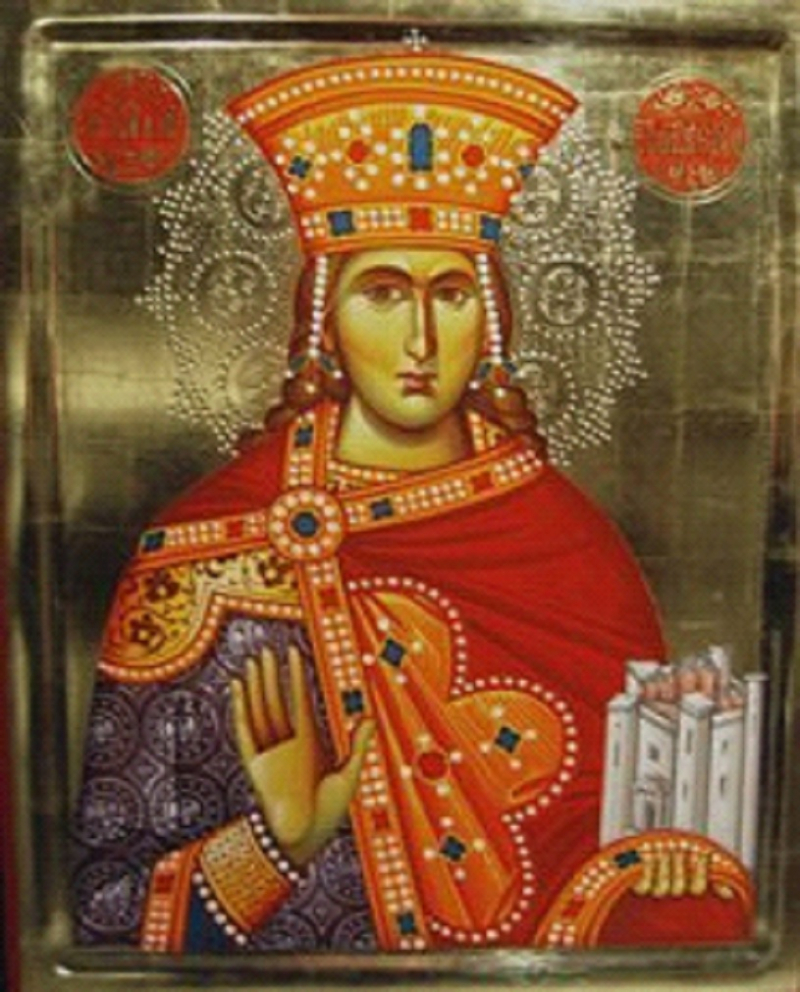
Photo: John Sanidopoulos Video: Arx Publishing -
The Rome Empire was thrown into the turbulence of conflicting emperors and catastrophes known as the Crisis of the Third Century after the fall of the Severan dynasty. When Aurelian became emperor, this time frame came to an end. He attacked competitors, took over the lost territory, expelled invaders, and united a dispersed kingdom. His brief but significant reign came to an end when he was killed. According to the sources, there was a long interval following his passing before the next emperor was crowned. Ulpia Severina might have been the independent ruler of the Roman world during this period.
Ulpia Severina, also referred to as Severina, was the daughter of Trajan's ancestor Ulpius Crinitus. She became the Roman Empress Augusta (274), the wife of Emperor Aurelian, one of the emperor's most important advisors and became one of the most powerful women of Ancient Rome. She participated in Aurelian's battles and was granted the mother of the country, the senate, and the barracks. Her choices and suggestions supported Aurelian in many of his endeavors. Following the passing of her husband, Aurelian, in the year 275, Severina ruled the Roman Empire. She was the first woman to lead the Roman Empire by herself as a result.
Severina's coin, which bears her likeness and name, was produced during her rule. On one side of the coin is information and data on Severina, who is seen wearing the same grim expression Stephane did on her face. The peace between the military and the imperial family is shown on the other side. However, she retired in seclusion before Marcus Claudius Tacitus' rule in 275 and passed away in 290 at the age of 55.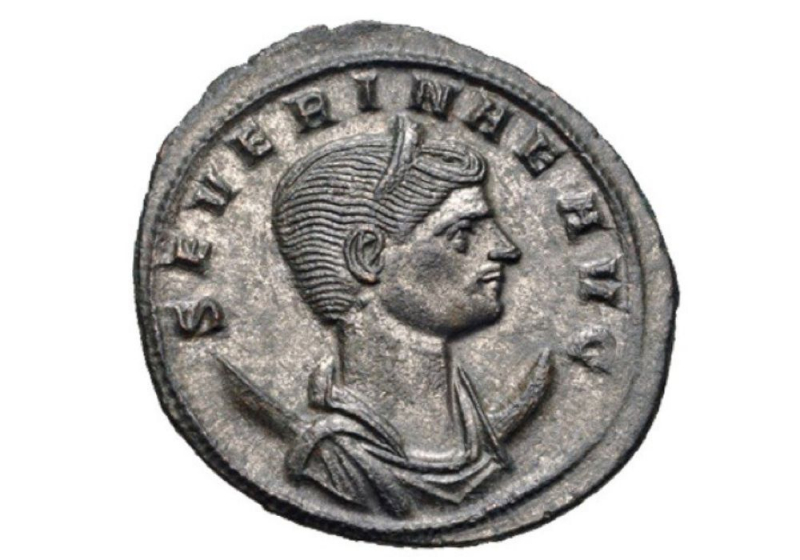
Photo: the NGC Collectors Society 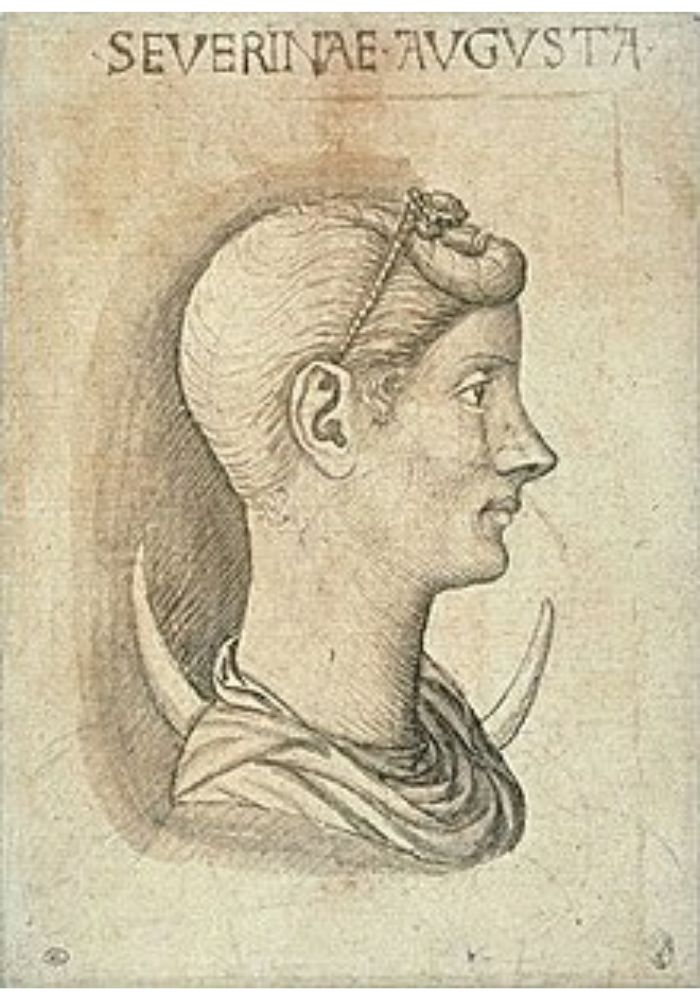
Photo: Wikipedia -
Julia Maesa, a prominent Roman woman, and her father Gaius Julis Avitus Alexianus were the parents of Julia Mamaea. She was born in 180 AD, and from 222 to 235 AD she was the Roman Empress.
The last of the influential ladies of the Severan dynasty would turn out to be Julia Mamaea. Alexander Severus, her son, was 14 years old when he ascended to the throne. Rome was in need of a regent, so his mother presided over the city. Although Julia Mamaea had a reputation as a conventional Roman matron, her strong leadership helped her go far beyond that position. She overturned some of Elagabalus' most ludicrous rules and restored order to the empire. When Alexander Severus reached adulthood, he made his mother the Imperial Consort and strongly relied on her guidance.
They went on all of Alexander's wars together, and he respected her as the Imperial Consort. He was revealed to be a weak commander with no military might during one of the operations in the North, which was a rebellion against a Persian invasion.
In 235 AD, soldiers turned on him because of his frailty and murdered his mother and son. With their passing, the Severan Dynasty likewise came to an end, and Emperor Maximinus Thrax ascended to the throne.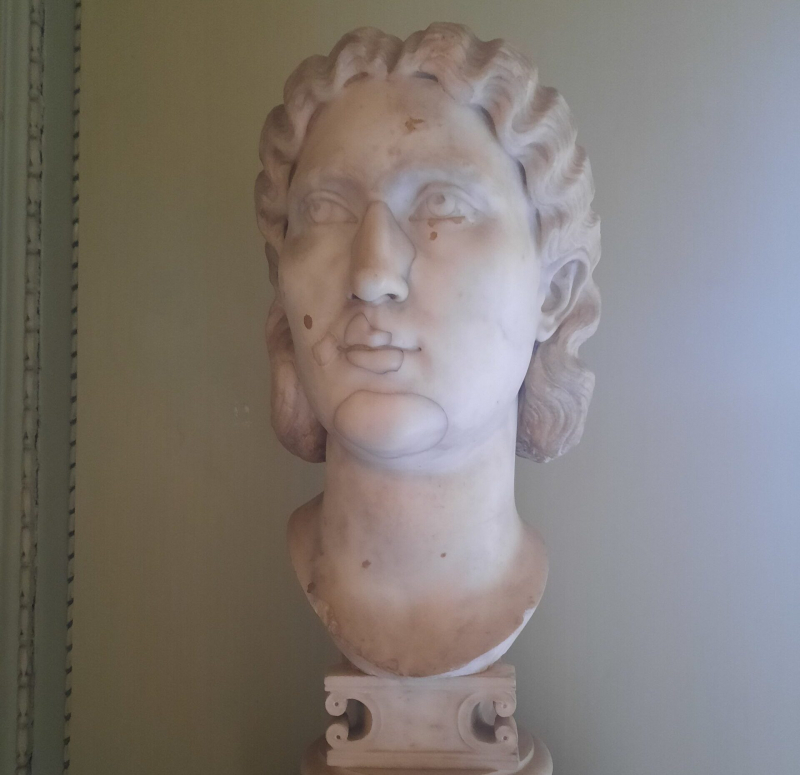
Photo: Ancient Rome Live 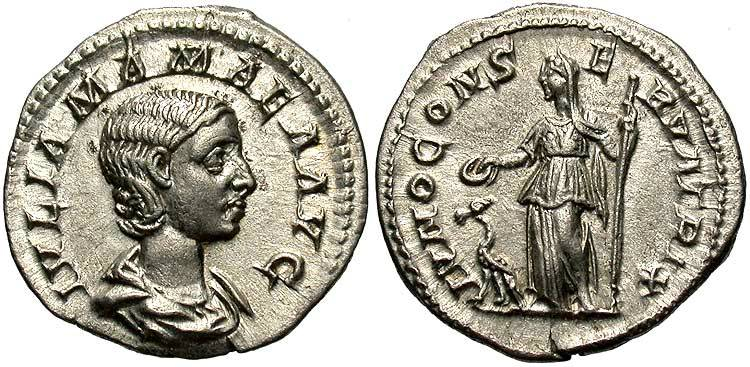
Photo: CoinsHome.net -
In this list of the most powerful women of Ancient Rome we also have Julia Maesa. Julia Maesa, a member of the Severan and Emesene dynasties, was born in Syria in the year 160. She was married to Julius Avitus Alesianus and the mother of Julia Mamaea and Julia Soaemias, two strong Roman women.
Julia Maesa had assisted in the assassination of Macrinus in order to install her grandson Elagabalus as king, but she quickly saw how unpopular the young man was. She made the choice to swap him and his mother out for Julia Mamaea and Alexander Severus, her other daughter. She forced Elagabalus to adopt Alexander Severus as his heir, bestowing upon him many honors. Alexander Severus was named the new emperor when Elagabalus was overthrown by the Praetorians. After Julia Maesa passed away, Alexander Severus, who was appreciative, turned her into a deity.
She also played a significant role in the administration of the Roman Empire because she was the first woman to succeed in installing both of her grandchildren as emperors of Rome when they were just 14 years old.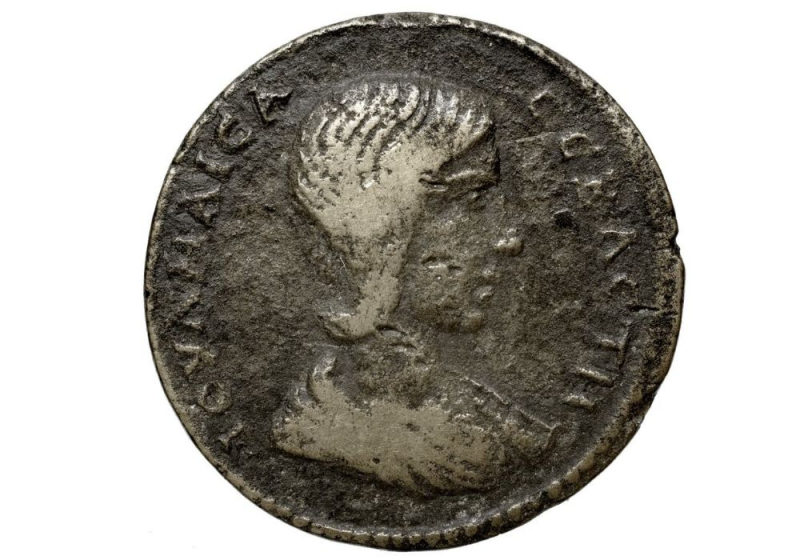
Photo: www.historyanswers.co.uk 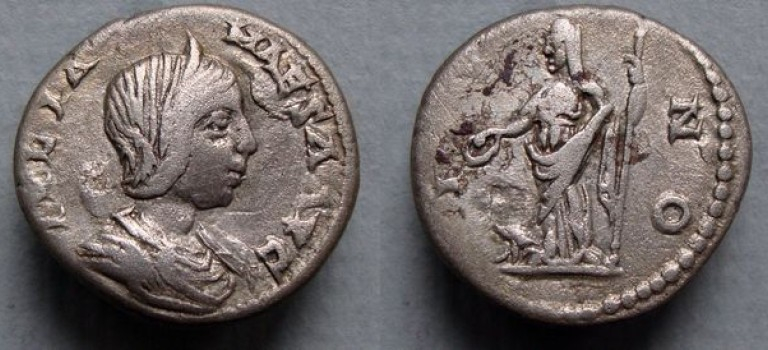
Photo: RomanCoinShop.com -
Julia Soaemias was Julia Maesa's daughter, a descendant of the Severan Dynasty and Julia Donna's niece. The praetorian prefect Macrinus succeeded to the throne following the deaths of Caracalla and his mother. He let the kin of Julia Domna relocate to Syria. This was a mistake. She organized a rebellion by plotting with others and using her money that quickly toppled Macrinus. Elagabalus, her 14-year-old son, was crowned emperor.
Macrinus managed Rome's civic affairs while serving as Caracalla's praetorian prefect. Following the passing of Caracalla and his mother Julia Domna, he ascended to the throne. On June 28, 218 at the Battle of Antioch, Elagabalus engaged Macrinus and defeated him, becoming the Emperor under Julia Soaemias' counsel and leadership. Elagabalus' mother, Julia Soemias, managed the entire system because he was so young. She served as a senatorial board member and one of Emperor Elagabalus' top counselors.
She raised her son to be a wise and revered Emperor, but he turned out to be the reverse and committed innumerable atrocities. He insulted the Senate, worshiped pagan gods, had affairs with men, and married a Vestal virgin in order to devalue the currency. As a result, there were disturbances, and on March 11th, 222, the Praetorian guard killed Elagabalus and Julia Soemias.
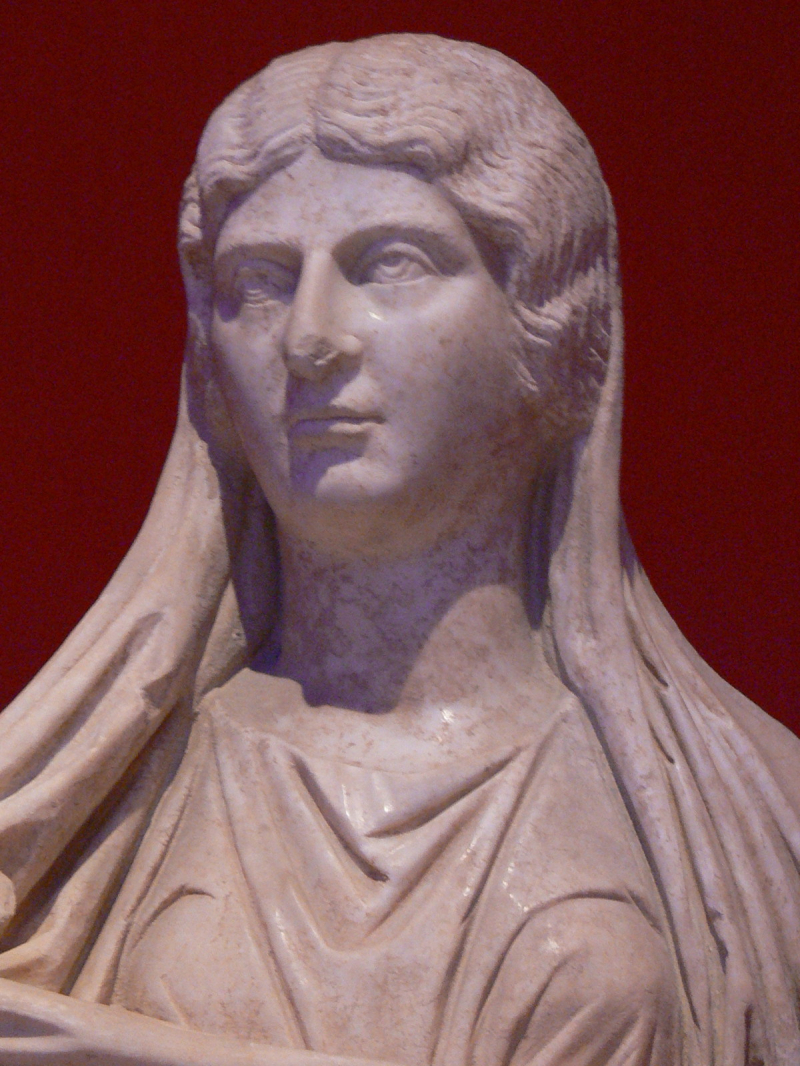
Photo: Wikipedia 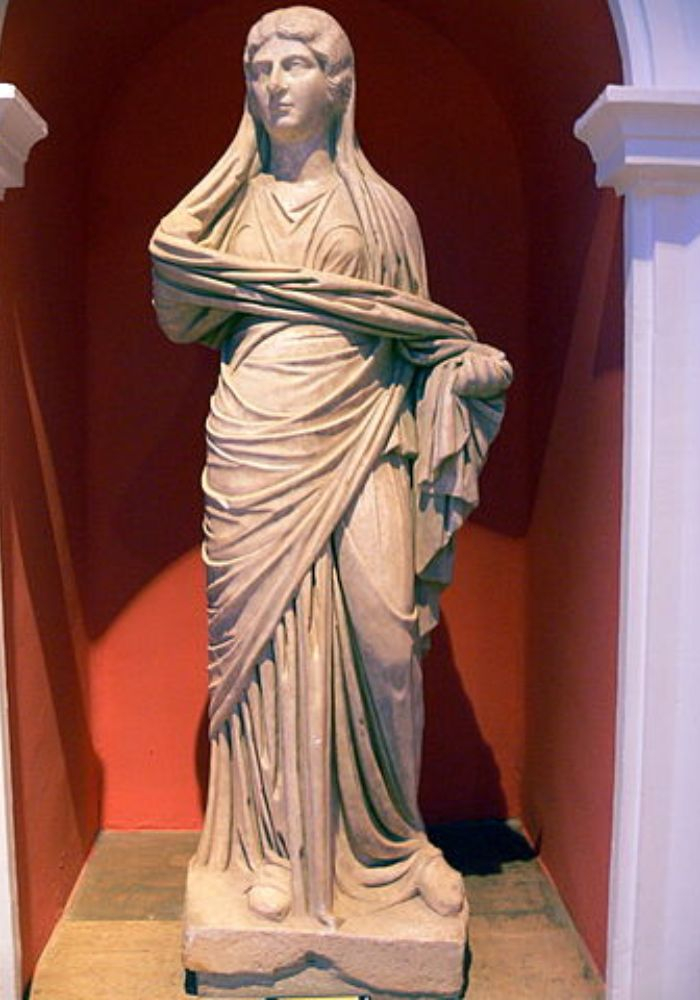
Photo: Total War Center -
Julia Domna, who was born in 160 AD, was wed to Septimius Severus, the final emperor to rule Rome following the year of the Five Emperors in 193CE. She assumed the title of Roman Empress in 193 and held it until 211 AD.
Julia Domna earned the moniker Mater Castorum - Mother of the Camp by accompanying her husband on his numerous campaigns to establish his kingdom. Despite being the Roman Emperor's wife, she developed her own personality and esteem among the Romans by battling Severus in different conflicts. She was one of Severus' principal counselors and played a significant effect in the majority of his choices. During the Year of the Five Emperors, in which Commodus was the first to be assassinated on New Year's Eve,192, she also advised and supported her husband. Being a woman of culture and intellect, she promoted philosophy in Rome and funded construction projects. She was featured on coins.
After her husband passed away, Julia Domna took on the role of middleman between their sons Caracalla and Geta, who hated one another yet had to share the throne. Caracalla killed his brother and reigned by himself, which partially strained his bond with his mother. She nevertheless accompanied Caracalla in a war against the Parthians.
She was also noted for her social, political, and intellectual inspirations and had a propensity for philosophy. Unfortunately, after her son Caracalla was killed during one of the operations against Pathia in 217 AD, she committed suicide.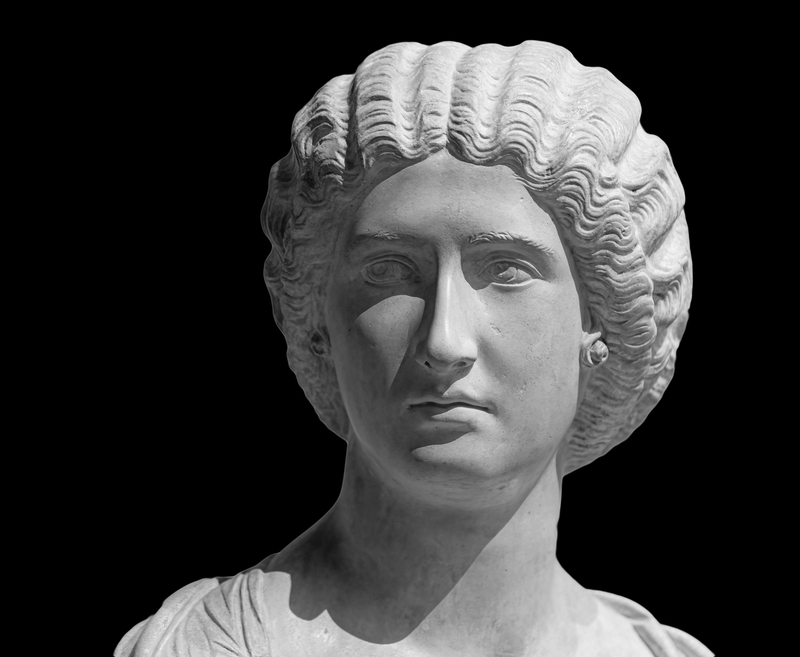
Photo: East Liberty Coins & Gems 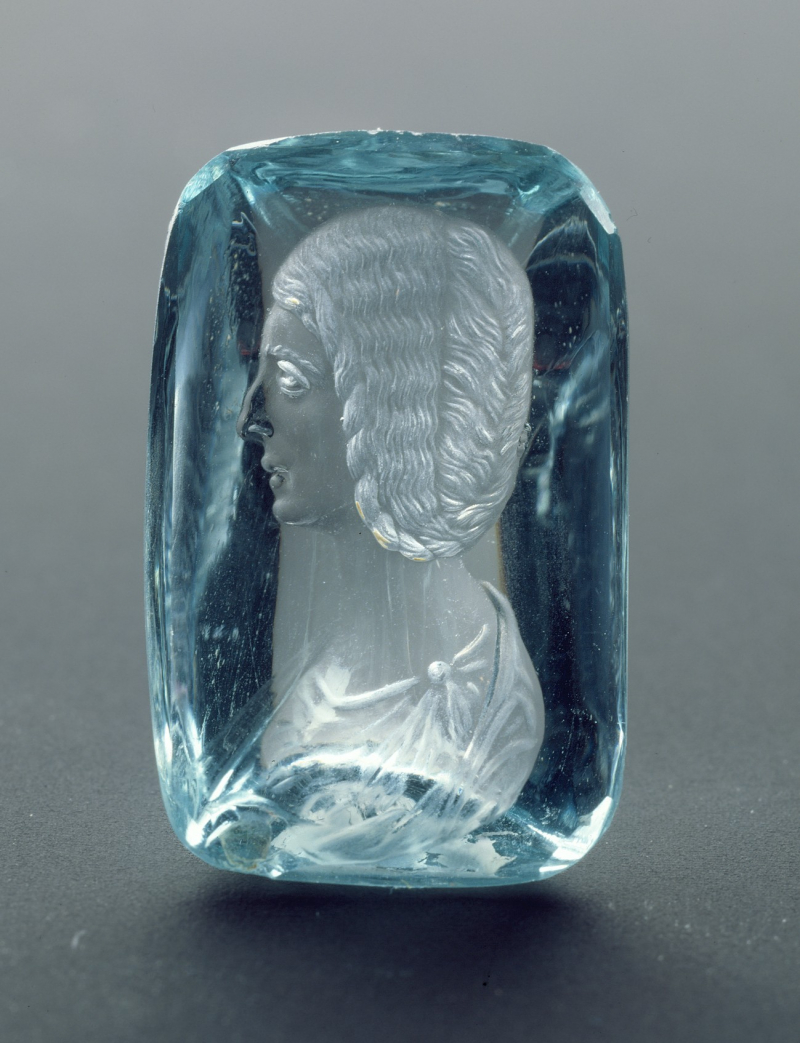
Photo: historyanswers.co.uk -
Agrippina the Younger was Livia's great-granddaughter and appears to have inherited her demanding parenting style from her. Agrippina wed her uncle, the emperor Claudius, and brought her son, the future emperor Nero, to the Imperial Palace. For the first few years of his reign, Nero depended on his strong mother until he started to rebel against her rule. When his killers arrived at Agrippina, she gave the order for them to stab her in the womb that had given birth to such a horrible boy.
Britannicus, Claudius' own son, was his obvious heir. Nero, who was older than the emperor's son, had Agrippina's backing, which his stepbrother did not. Nero assumed the emperor after Claudius' death, which Agrippina was suspected of having a hand in, and Britannicus was relegated to the background until his own strange demise.
During his early rule over the Roman Empire, Agrippina assisted, counseled, and consulted Nero. Although he was married to Octavia, Poppaea Sabina was the object of his affections.
Agrippina disapproved of the relationship, and Nero requested that his mother refrains from meddling in his private affairs. On his second effort, he was successful in killing her as he had intended.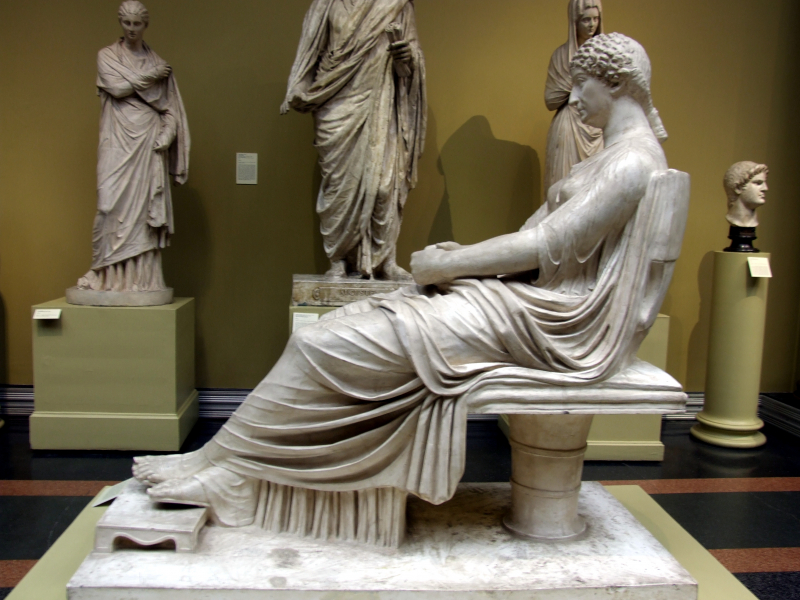
Photo: Brewminate 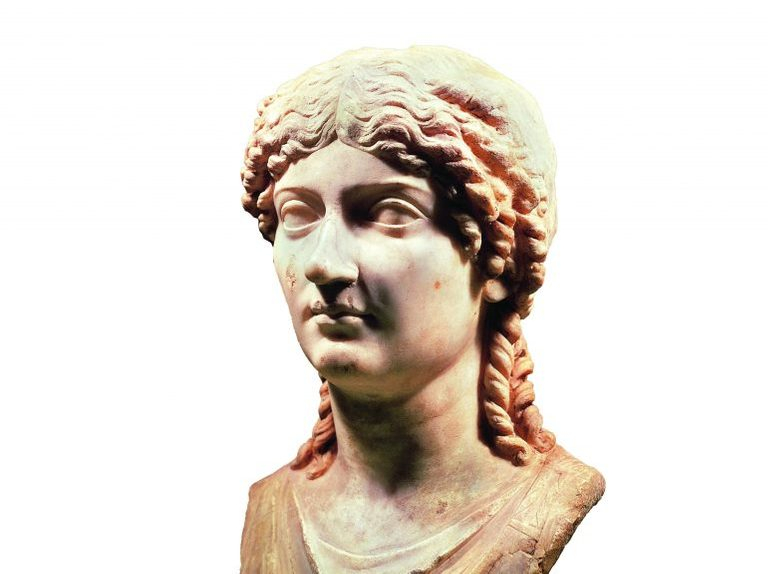
Photo: History Extra -
Roman Senator Marcus Livius Drusus Claudianus and Alfidia were the parents of Livia Drusilla, one of the most powerful ladies in ancient Rome. Emperor Augustus was married to Livia Drusilla for 51 years. Livia was by all accounts the obediently modest and diligent woman that the Romans expected her to be. She nevertheless put quite a lot of effort in the background, coaching Augustus, to keep the Imperial System working.
She served as one of Emperor Augustus' top advisors and oversaw the government long after his demise and under the rule of Tiberius, her son by Nero. She was renowned for acting in the background while her husband and son served as powerful leaders, acting as their confidantes and counselor.
In his testament, Emperor Augustus gave Livia a portion of his estate and adopted her into the Julian dynasty, giving her the new namesake and title of Julia Augusta.
After her death in 29 AD, she was revered as the Divine Augusta. She was, however, blamed for killing her husband, Augustus, while he was still alive.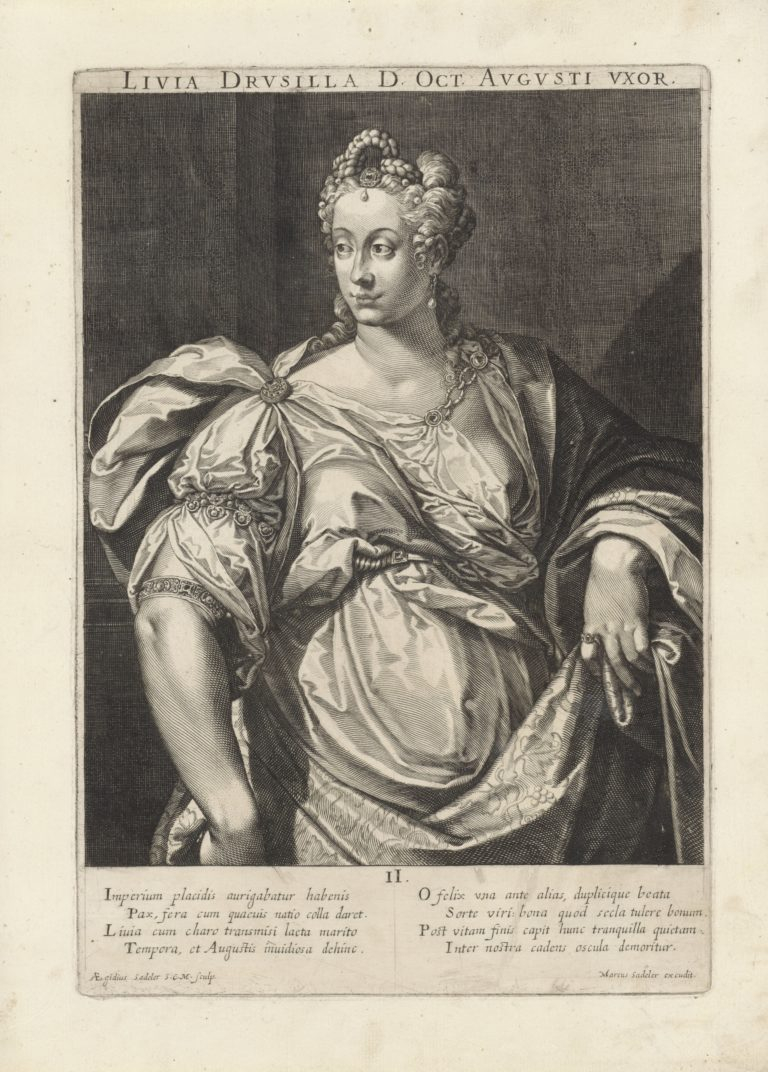
Photo: www.historyanswers.co.uk Video: Study of Antiquity and the Middle Ages













